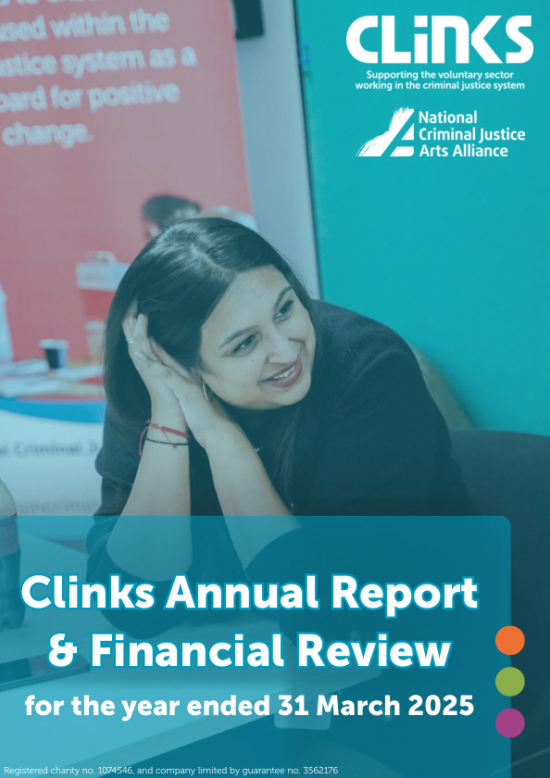On 16th September 2020, the government published A Smarter Approach to Sentencing. This white paper sets out a number of proposals for changes to sentencing in England and Wales.
In this first of a series of blogs, we provide an overview of how this paper has been developed, what the key proposals are and the steps towards implementation. Future blogs will drill down further into the detail of these proposals and the impacts they may have on voluntary organisations and the service users they support.
What's in it and why does it matter?
A Smarter Approach to Sentencing sets out the government’s proposals for important changes to sentencing policy it hopes to make in the coming months. It’s a lengthy document, incorporating the government’s manifesto commitments to increasing the length of time people will spend in prison for certain convictions, but also incorporates measures on community sentences and records checks.
The paper has been published as a white paper, meaning that the measures set out are a clear indication of what the government plans to do and there is no formal consultation. Some of these proposals will require legislation, which is expected to be brought before parliament early next year, but there are also a number of commitments towards investment, trials and pilots that can continue without legislation. The proposals include:
- People who receive a sentence of four years or more for some more serious convictions will serve two-thirds of their sentence in prison. This is an extension of the rules brought in earlier this year to end halfway release for people serving sentences of seven years or more for certain offences.
- A new community order called a House Detention Order, which includes a lengthy and restrictive curfew, aimed at people “who have not responded to existing community sentences.”
- An increase to the maximum period of curfew enforced through electronic monitoring from 12 months to two years for more serious offences.
- Greater funding for Community Sentence Treatment Requirements (CSTRs). CSTRs are community sentences where the person consents to attend and complete treatment for a mental health, drug and/or alcohol problem as part of their sentence.
- Changes to disclosure periods for criminal records. Some sentences of up to four years in prison will no longer need to be disclosed to employers if the person remains conviction-free for four years after serving their sentence. Some sentences of over four years can also become spent if the person remains conviction-free for seven years.
The wrong direction of travel
This paper further signals this government’s direction of travel for sentencing policy. This white paper will lead to more people in prison and more people in prison for longer, even though there is no evidence that longer sentences make any difference to public safety. Scotland, England and Wales already have the highest imprisonment rates in Europe, caused largely by sentences that have got longer over a number of years, despite no evidence of a correlating increase in crime. This has led to overcrowding in prisons, limiting the amount of effective rehabilitative and resettlement work that can take place, exacerbated by poor conditions in an ageing prison estate.
Clinks thinks that instead of increasing sentences, the Ministry of Justice (MoJ) should develop a clear strategy for reducing the number of people in prison. Our sentencing briefing shows how we think the government should achieve this, by addressing sentence inflation, reducing the use of short prison sentences and increasing the use of community sentences as an alternative to custody. This white paper fails to change the direction on sentencing policy towards reforms that can reduce reoffending.
A missed opportunity to draw on voluntary sector knowledge and expertise
Clinks believes that a smarter approach to sentencing would pro-actively engage the voluntary sector as a valued partner in policy making. We are concerned that there has been a lack of open consultation on the development of these proposals and as such they do not reflect the knowledge held within the voluntary sector about what works to support people who have committed crime, reduce reoffending and ultimately keep communities safe.
Clinks chairs and coordinates the Reducing Reoffending Third Sector Advisory Group (RR3), a formal advisory group to the MoJ and Her Majesty’s Prison and Probation Service (HMPPS). The RR3 has a wealth of experience providing essential services across the justice system to some of society’s most vulnerable people. The RR3 has long made offers of support to the MoJ to feed into the development of their sentencing policy, but our offers have not been taken up. Last year, an internal sentencing review was conducted by the MoJ to inform the proposals of the future white paper. The RR3 were disappointed that this review was neither transparent nor open and that the final review was never published.
The RR3 sought engagement this year with the development of the white paper but again were left frustrated. We were repeatedly reassured by the MoJ that in lieu of this engagement, the paper would be published as a full consultation. It is deeply regrettable then that these assurances have not materialised, which will likely see the government press ahead uninterrupted with these overwhelmingly damaging proposals.
What’s next?
Clinks will work alongside voluntary organisations and the MoJ to make the most of the opportunities presented within the white paper especially around community sentences. Advocacy voluntary organisations will also be working over the coming months to influence the progress of legislation as it is brought to parliament, and we will keep members up to date through our weekly ebulletin Light Lunch and on Twitter.
We will also publish a series of blogs in the coming weeks, drilling down into the detail of aspects of the paper and its likely impacts. The next blog will focus on the unequal impact aspects of this white paper may have on different groups of people, including the likely disproportionate impact on black and Asian men. We will also explore in more detail the likely impacts of the white paper on sentence inflation and the prison population, and the proposals for community sentences.
Photo: © Andrew Aitchison
What's new
Blogs
Anne Fox CEO of Clinks to stand down after a decade of service
Latest on X
The role is for a leader from an organisation focused on racially minoritised people, with expertise in service delivery, policy, advocacy, or related areas in criminal justice. Racial disparities are present at every CJS stage. This role ensures these voices are central in shaping policy to help address and eradicate them. Apply by Mon 18 Nov, 10am. More info: https://www.clinks.org/voluntary-community-sector/vacancies/15566 #CriminalJustice #RR3 #RacialEquity

